Policy Brief "Entrepreneurship in Focus"
The IfM Bonn and the FGF-Forschungsnetzwerk Entrepreneurship, Innovation und Mittelstand e.V. jointly edit the policy brief "Entrepreneurship in Focus" (formerly "Mittelstand aktuell") since November 2016. On 2 pages, research results on current topics are presented together with recommendations for economic policy makers.
39 Results
Policy Brief "Entrepreneurship in Focus" | 2026 Vocational Qualifications in the Context of Innovation: Does Firm Size Matter
Vocational training is more than just a means of securing skilled workers—it also strengthens companies' innovative capacity.
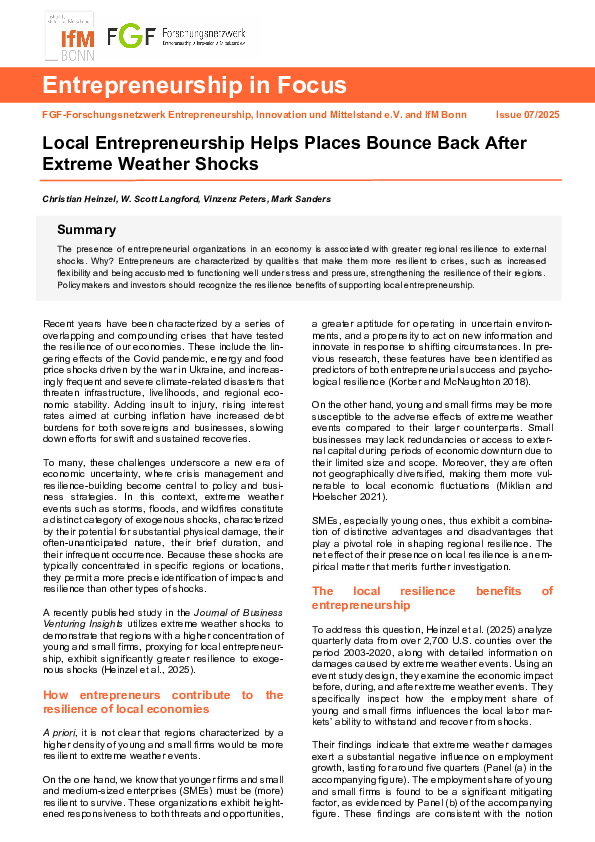
Policy Brief "Entrepreneurship in Focus" | 2025 Local Entrepreneurship Helps Places Bounce Back After Extreme Weather Shocks
The presence of entrepreneurial organizations in an economy is associated with greater regional resilience to external shocks. Why?
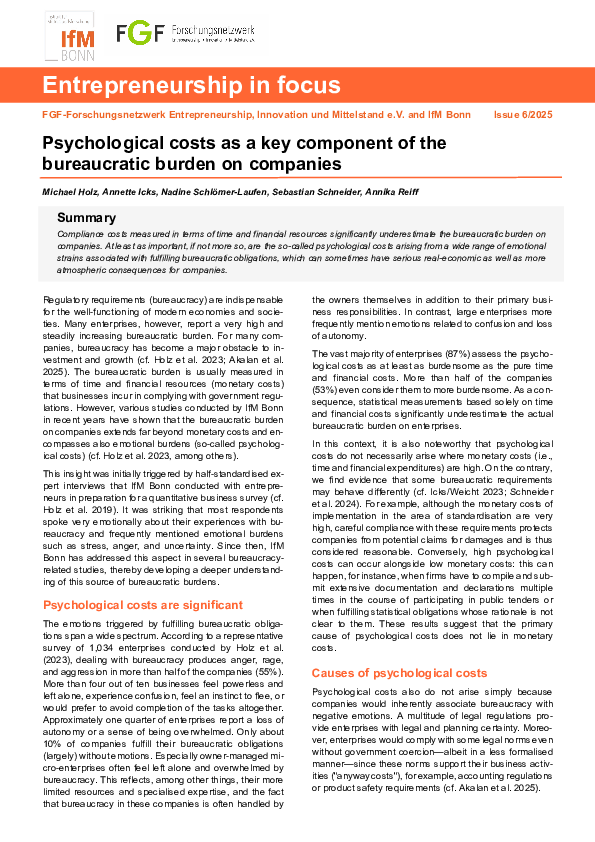
Policy Brief "Entrepreneurship in Focus" | 2025 Psychological costs as a key factor in the bureaucratic burden on businesses
Compliance costs measured in terms of time and financial resources significantly underestimate the bureaucratic burden on companies.
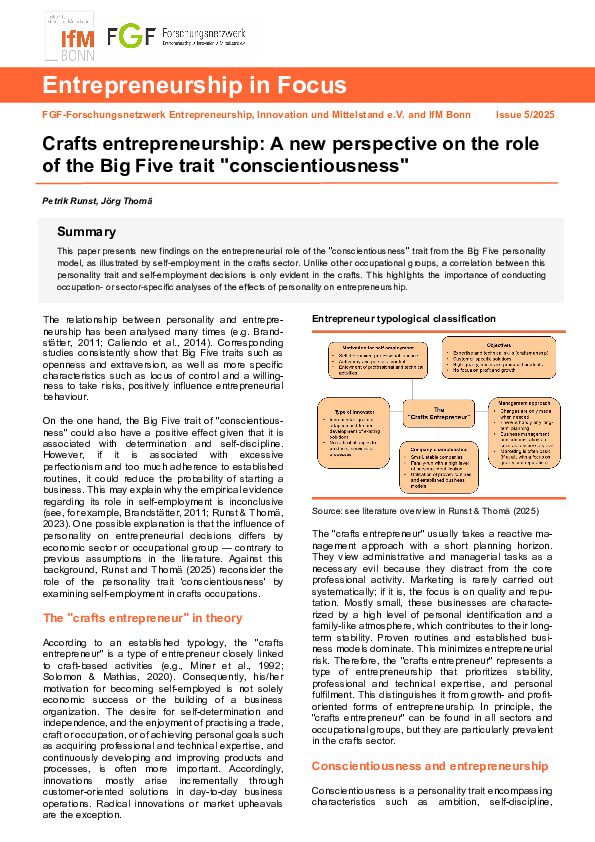
Policy Brief "Entrepreneurship in Focus" | 2025 Crafts entrepreneurship: A new perspective on the role of the Big Five trait "conscientiousness"
This paper presents new findings on the entrepreneurial role of the "conscientiousness" trait from the Big Five personality model, as illustrated by self-employment in the crafts sector.

Policy Brief "Entrepreneurship in Focus" | 2025 Time or Money? Mothers and Start-up Decisions
How do parental leave policies influence mothers’ decision to become an entrepreneur? This study finds: A reduction in parental leave duration significantly lowers the likelihood that mothers start their own business.
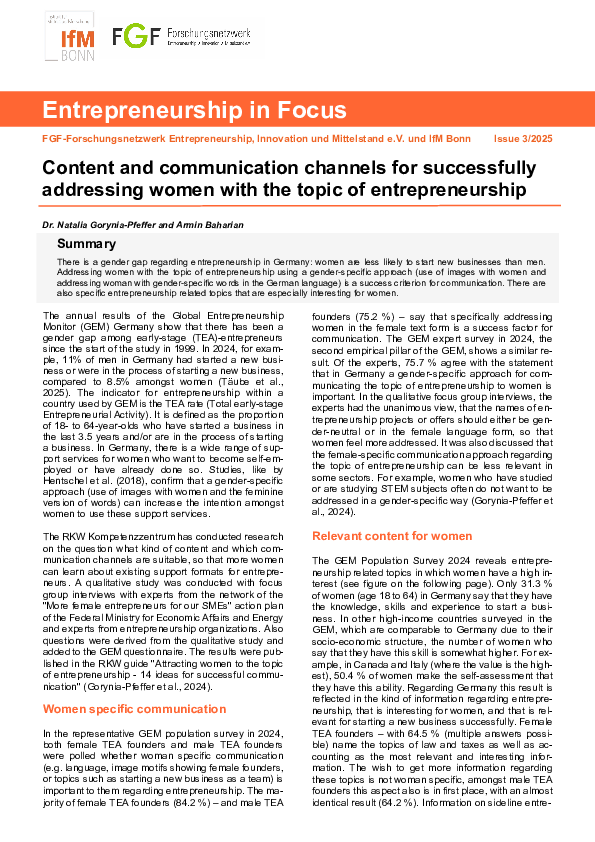
Policy Brief "Entrepreneurship in Focus" | 2025 Content and communication channels for successfully addressing women with the topic of entrepreneurship
There is a gender gap regarding entrepreneurship in Germany: women are less likely to start new businesses than men.
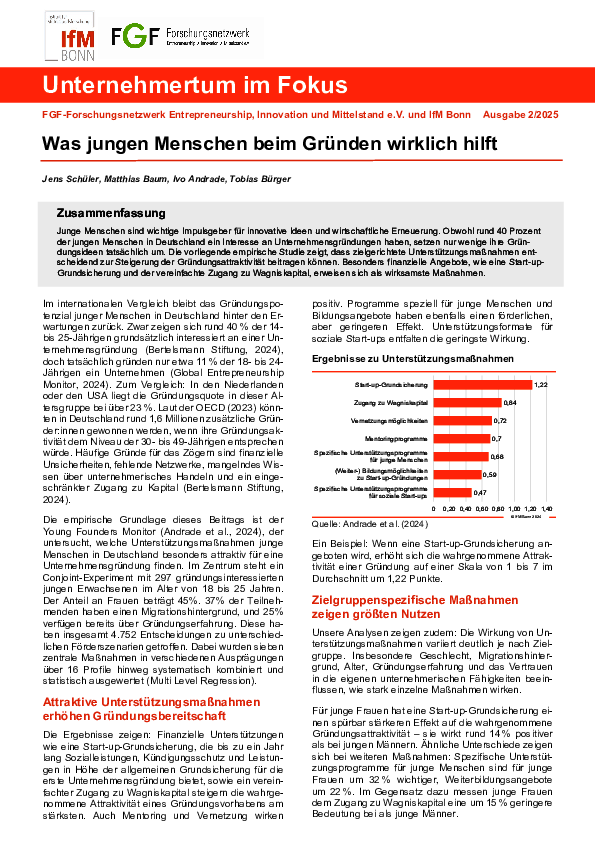
Policy Brief "Entrepreneurship in Focus" | 2025 What really helps young People start a Business
Young people are vital drivers of innovation and economic renewal.

Policy Brief "Entrepreneurship in Focus" | 2025 Artificial intelligence in the skilled trades
The use of artificial intelligence in skilled trades is on the rise, but there is still potential for improvement.
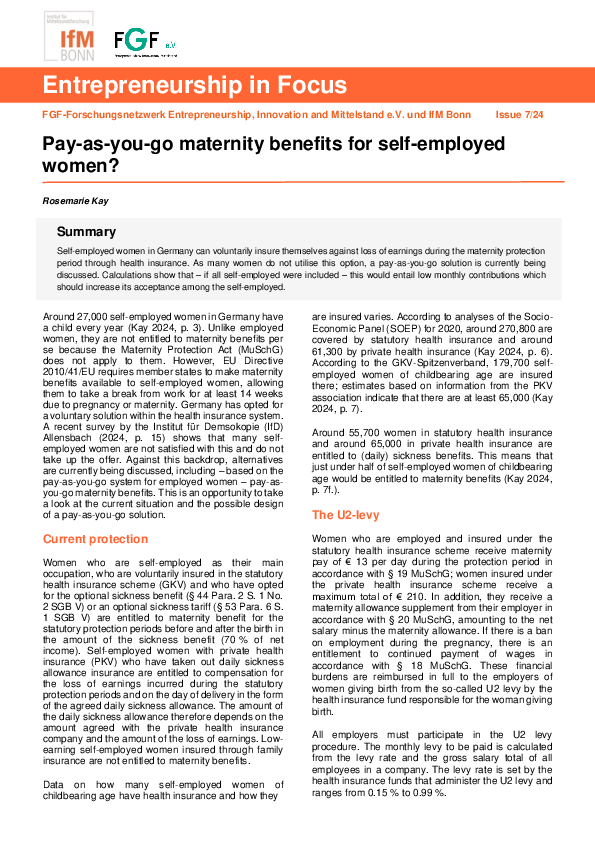
Policy Brief "Entrepreneurship in Focus" | 2024 Financed maternity benefits for self-employed women?
Self-employed women may voluntarily insure themselves through their health insurance against a loss of earnings during the maternity protection period.
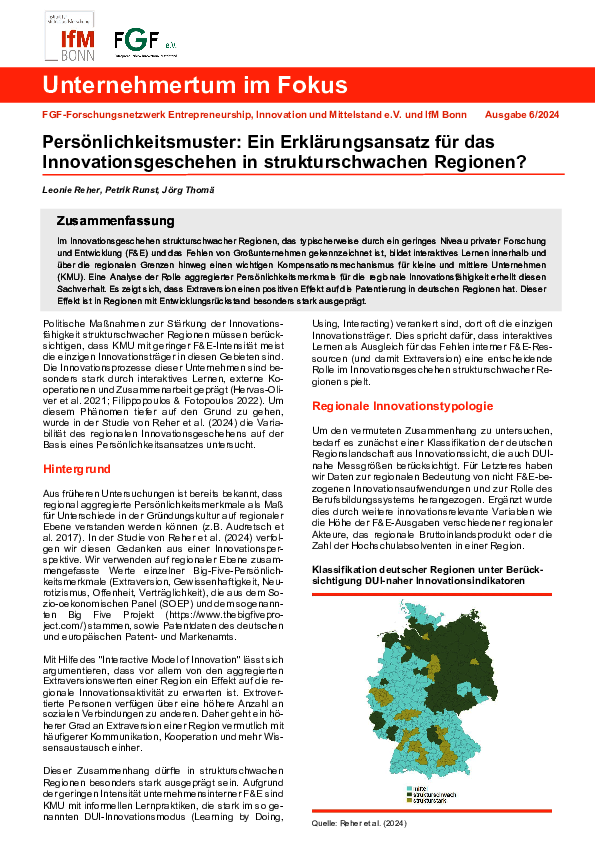
Policy Brief "Entrepreneurship in Focus" | 2024 Patterns of personality: An explanatory approach to innovation in lagging regions?
In the innovation process of lagging regions, which are typically characterized by low levels of private research and development (R&D) and the absence of large firms, interactive learning within and across regional borders serves as an important compensatory mechanism for small and medium-sized enterprises (SMEs).
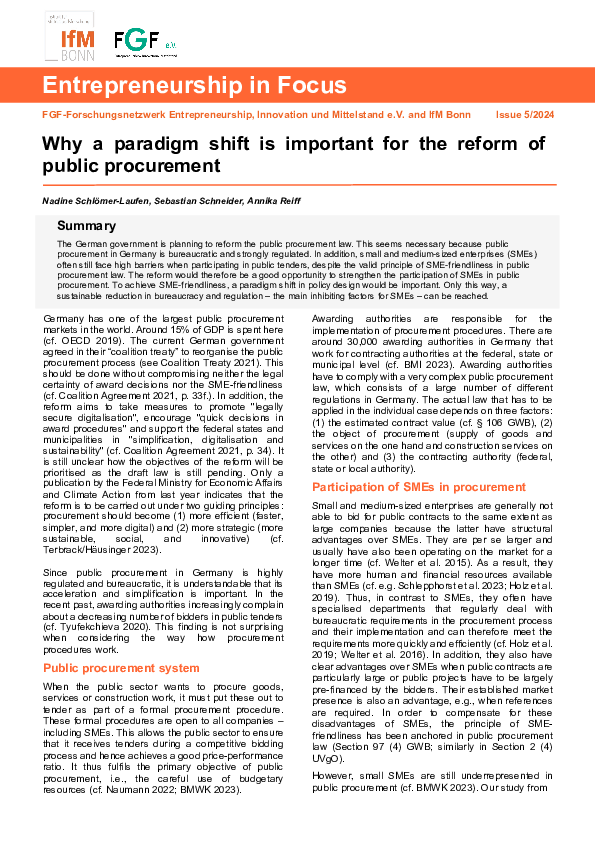
Policy Brief "Entrepreneurship in Focus" | 2024 Why a paradigm shift is also important for the amendment of public procurement
The German government is planning an amendment to public procurement law. It seems necessary because public procurement in Germany is bureaucratic and heavily regulated. SMEs are also often still very unwilling to participate in public tenders - despite the current principle of ‘SME friendliness’ in public procurement law.
Policy Brief "Entrepreneurship in Focus" | 2024 Decarbonisation of medium-sized firms in the manufacturing sector
A reduction of CO2-emissions and a decarbonisation of the manufacturing sector is important to achieve the climate targets of the Paris Agreement.
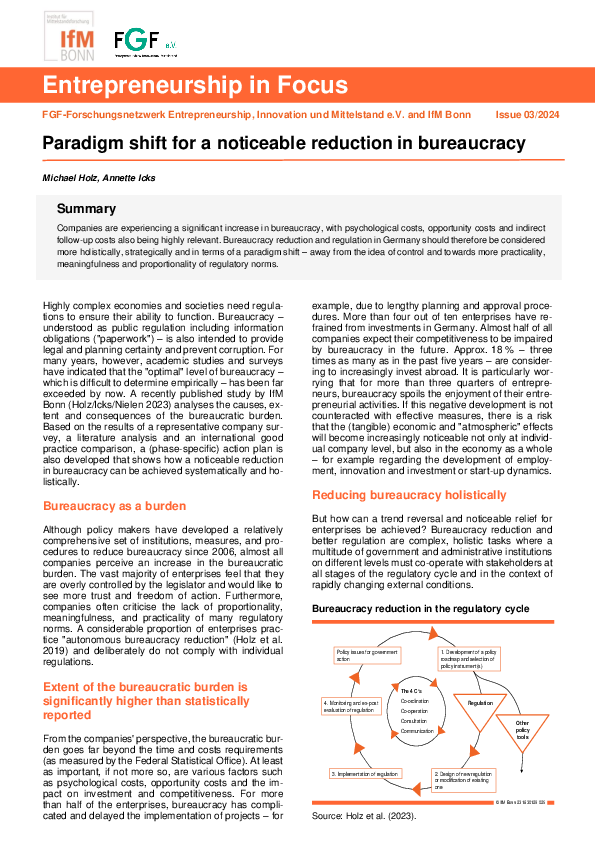
Policy Brief "Entrepreneurship in Focus" | 2024 Paradigm shift for a noticeable bureaucracy reduction
Companies perceive a significant increase in the bureaucratic burden, with psychological costs, opportunity costs and indirect follow-up costs also being highly relevant.
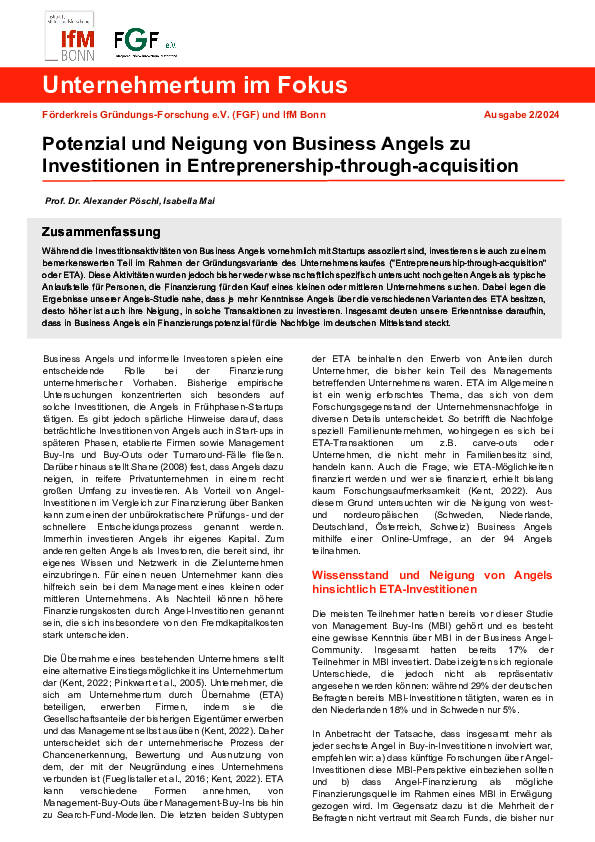
Policy Brief "Entrepreneurship in Focus" | 2024 The potential of angel investing in Entrepreneurship-Through-Acquisition
While the investment activities of business angels are primarily associated with startups, they also invest to a notable extent in the entrepreneurial acquisition variant of company formation ("Entrepreneurship-through-acquisition" or ETA).
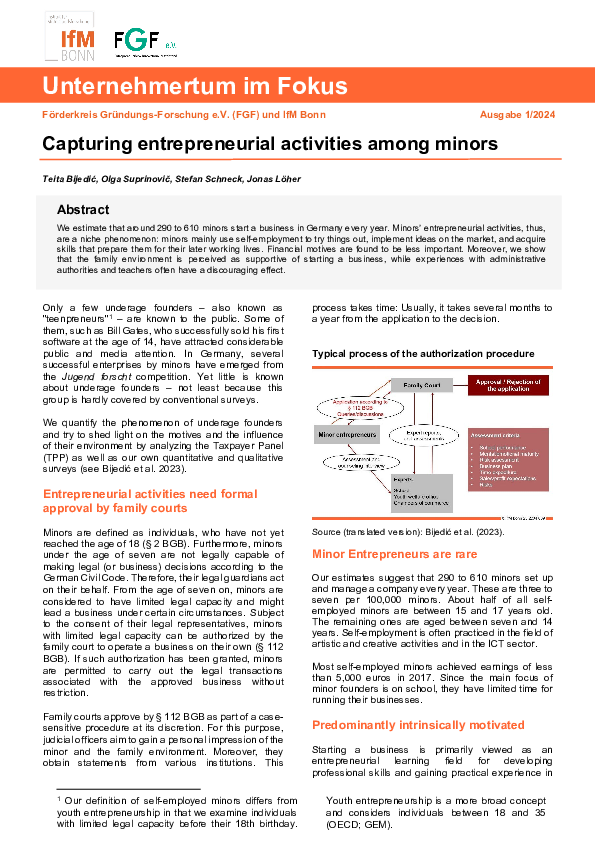
Policy Brief "Entrepreneurship in Focus" | 2024 Capturing entrepreneurial activities among minors
The authors explain in the policy brief what minors’ entrepreneurial activities characterise. Minors mainly use self-employment to try things out, implement ideas on the market, and acquire skills that prepare them for their later working lives.
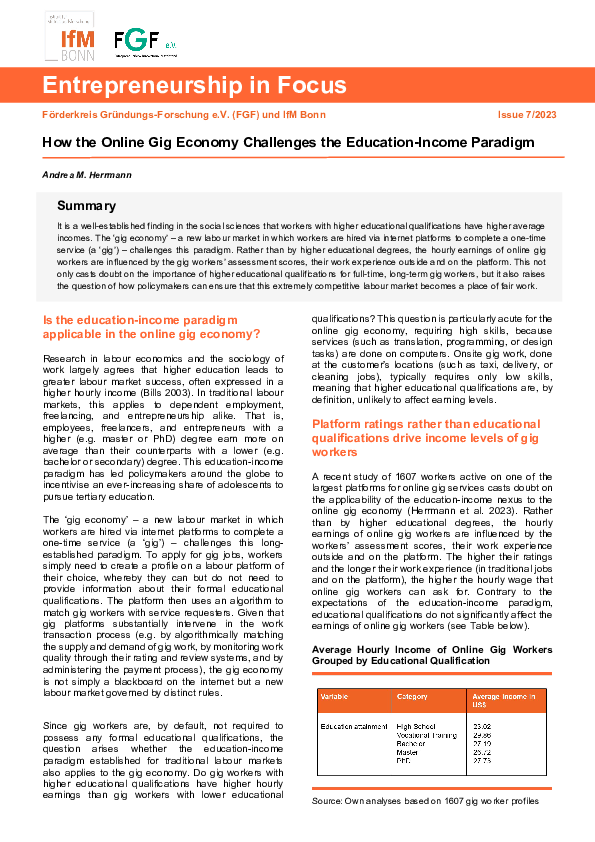
Policy Brief "Entrepreneurship in Focus" | 2023 How the Online Gig Economy Challenges the Education-Income Paradigm
It is a well-established finding in the social sciences that workers with higher educational qualifications have higher average incomes.
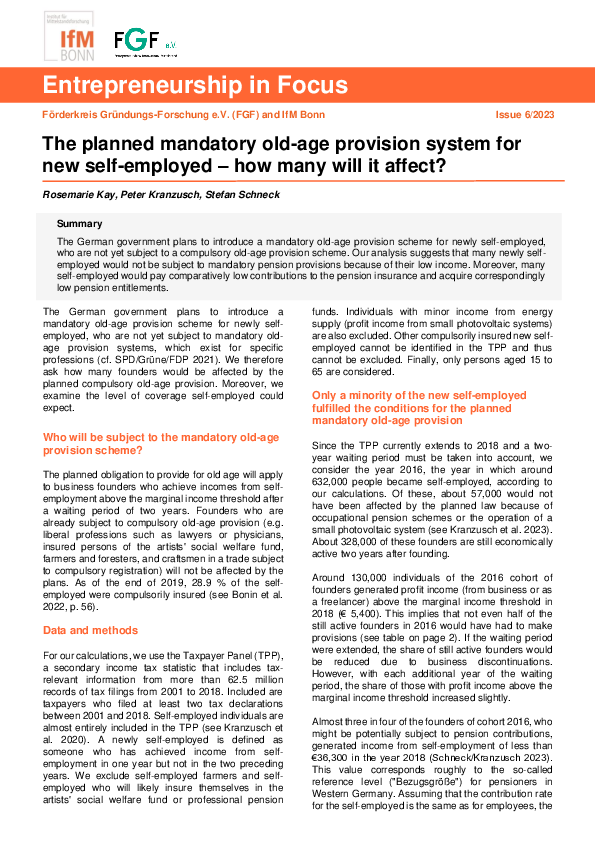
Policy Brief "Entrepreneurship in Focus" | 2023 The planned mandatory old-age provision system for new self-employed – how many will it affect?
The German government plans to introduce a mandatory old-age provision scheme for newly self-employed, who are not yet subject to a compulsory old-age provision scheme. The analysis of the authors suggests that many newly self-employed would not be subject to mandatory pension provisions because of their low income.
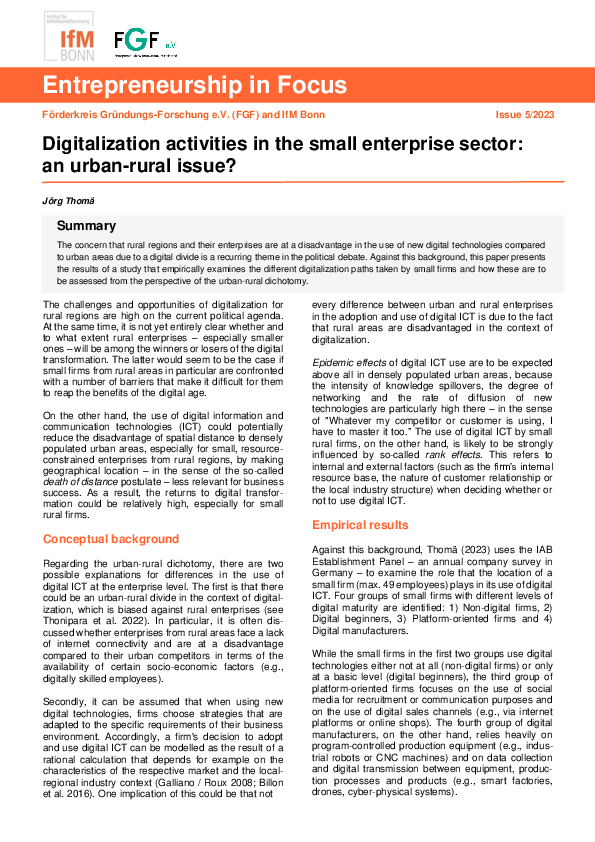
Policy Brief "Entrepreneurship in Focus" | 2023 Digitalization activities in the small enterprise sector: an urban-rural issue?
The concern that rural regions and their enterprises are at a disadvantage in the use of new digital technologies compared to urban areas due to a digital divide is a recurring theme in the political debate.
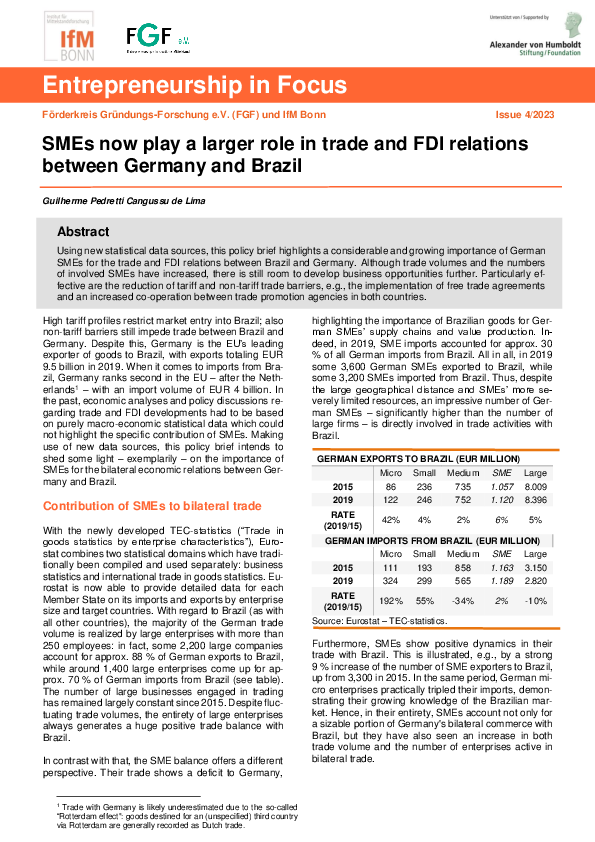
Policy Brief "Entrepreneurship in Focus" | 2023 SMEs now play a larger role in trade and FDI relations between Germany and Brazil
Using new statistical data sources, this policy brief highlights a considerable and growing importance of German SMEs for the trade and FDI relations between Brazil and Germany.

Policy Brief "Entrepreneurship in Focus" | 2023 How young and established companies differ with regard to sustainability and digitisation efforts
The Global Entrepreneurship Monitor data from 2021 shows that new business owner-managers and established business owner-managers have different digitisation and sustainability efforts.